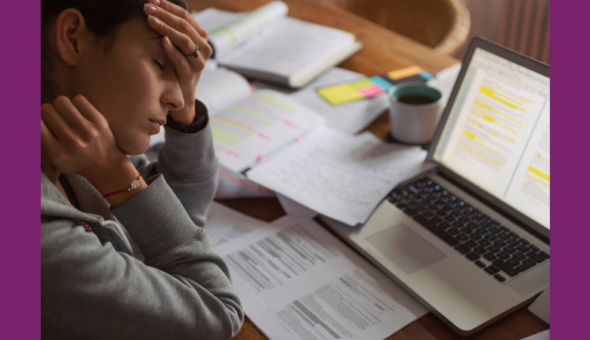Does the International Baccalaureate (IB) prepare students for university? Will University be easy after doing the IB? What is the transition from high school to university like?
These are some of the questions I know I was asking myself (or Google) after graduating with my IB Diploma. My name is Lola, I study Education with Psychology, and I am one of the Co-Creators in the Skills Centre. Before moving to Bath to start university, I completed the IB in Berlin, Germany.
Although no two experiences of high school or university are the same, in this blog I share my experience of how the IB prepared me for university.
Throughout the blog you will also be hearing from Iona, Andrew, Weronika and Valentino who are all IB Alumni and current students at the University of Bath. I will introduce each of them along the way.
What is the IB?
For any readers, who are unfamiliar with the IB, I will briefly explain what these two letters stand for. IB students, feel free to scroll to the next section!
‘IB’ stands for International Baccalaureate’ and 'IBDP' stands for International Baccalaureate Diploma Programme. To keep it brief, let's stick with IB.
To earn the IB students must
- Study 6 subjects: 3 at Standard Level (SL) and 3 at Higher Level (HL)
- HLs cover more content and have more exams.
- Complete Creativity, Activity, and Service (CAS), involving projects in artistic expression, physical activity, and volunteering, respectively.
- Take Theory of Knowledge (TOK), a philosophical course assessed through an essay and a presentation.
- Write an Extended Essay, a 4,000-word self-directed research project.
If you wish to gain more information about the IB you can access Our mission - International Baccalaureate® (ibo.org)
Now that you have completed my crash course on the IB, read on to find out what the diploma taught me.
How the IB Prepared me for University
In my course, critical thinking, presentation skills (digital and in-person) and essay writing were crucial elements. Aspects of the IB such as TOK presentations and the Group 4 Project helped me gain confidence in my presenting, editing and speaking skills which prepared me for the academic demands of first year.
But don’t just take my word for it. Weronika, an IB alumni, who is now a first year Psychology student (and also happens to be my flatmate) also found that taking the IB helped to prepare her for university.
“The IB’s internal assessments (IAs) taught me how to be reliable in group projects and self-sufficient in my own projects. I learned the importance of proactivity and diligence, which made me feel confident … in my Psychology BSc course. I felt prepared and knew what was expected from me.”
- Weronika, BSc Psychology
Critical Thinking Skills
Every subject in the IB encourages students to engage with critical thinking. For example, in history class, we were pushed to engage with different historical perspectives critically through historiography. Overall, critical thinking is an invaluable skill I gained from the IB that I continue to use in university.
Valentino also completed the IB and is now a second year International Management and Spanish Student (and a Salsero). When I asked him about his experience, he said…
“Personally, I think IB helps to set students up so much better for university. IB students are able explore a wide range of subjects and have an opportunity to develop a greater critical and analytical viewpoint”
- Valentino, BSc International Management with Spanish
Organisation and Time Management
I’ll always remember cramming for my final IB Biology exam, which was a few hours before my prom. Although managing time was a struggle, I learnt how to maximise personal organisation tools like Notion, which I continue to use for everything from noting down my friends’ birthdays to logging research articles for essays. Additionally, my course at Bath has a similar structure of both coursework and exams, which allowed me to utilise the time management skills I developed during the IB managing IAs and exams. These time management skills included creating countdowns to my deadlines and setting short term goals ahead of time for each task.
Andrew (Andy for short) is an IB alumnus who is now studying Computer Science. He also found that managing the workload of the IB helped him to tackle the demands of university.
“Completing the IB was pretty rough, I spent a lot of time doing work….whether it was my higher level subject or standard level subjects or doing other things like CAS, TOK and my extended essay. Although, I still had a lot of time to do other stuff so I played a lot of rugby and was helping out at the science club during IB.
But yeah, I think that helped in a way to prepare me for the workload at uni”
- Andy, MComp Computer Science
Iona also graduated with an IB Diploma and is now a second year Biomedical Science student (and a Salsera). I asked about her experience and it was a similiar success story.
“Taking the IB was one of the best decisions I have made. Taking 6 subjects alongside TOK and CAS meant that I learnt how to cope with a busy schedule and maintain a healthy lifestyle. Having developed these skills at home in a nurturing environment meant that moving to university and coping with assignments and stress was very manageable”
- Iona, BSc Biomedical Science
New Challenges
While the IB did help me to prepare for university, there were many new academic challenges in university. Recognising and accepting the differences between IB and university study is essential to success.
“One thing I would say is that taking the IB will not necessarily make first year a “breeze”, which I have been told in the past. You still have to put a lot of effort into your studies, and you will learn new things that the IB did not cover.”
– Weronika, BSc Psychology
Alongside new information, university also introduces a new style of studying, where students are expected to work independently. The IB encouraged independence, but it was still a much more structured educational experience than university is. Iona explains how this experience was for her.
“I would say it was quite different for me to have so much free time in University in comparison to high school. I am used to having a jam packed schedule whereas at university it is expected that students self study. This has been a challenge for me as I have discovered I work best with longer contact hours and less self directed learning.”
– Iona, BSc Biomedical Science
Social Life and global awareness
In my experience, attending an international school to do IB was really valuable. I got to form friendships and learn how to interact with people from all over the world, finding out more about their cultures and perspectives.
Weronika had a similar experience studying at an IB school.
“While at an IB school, I had the opportunity to interact with many individuals from various places; I became culturally aware but also interested in learning about people’s backgrounds. When I started University, I found it easy and exciting to talk to people about their lives, as I knew that people often enjoy discussing their home country and their background. “
– Weronika, BSc Psychology
All in all, the IB prepares students well for the transition from high school to university. As you complete your university journey, I encourage any IB students reading this to make use of the skills that the diploma provides during university and to be gracious as you learn, remembering that despite all you know there is always more to learn.
Respond


